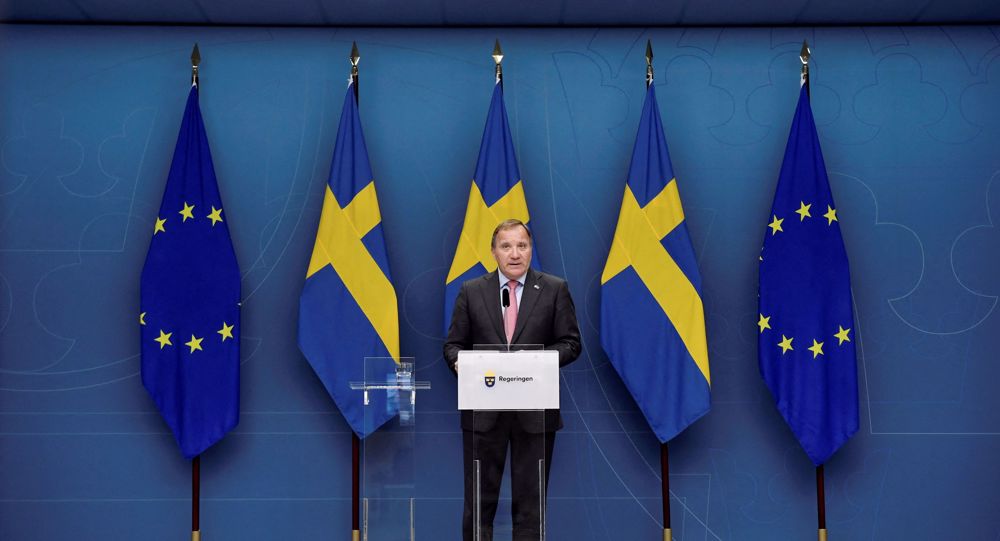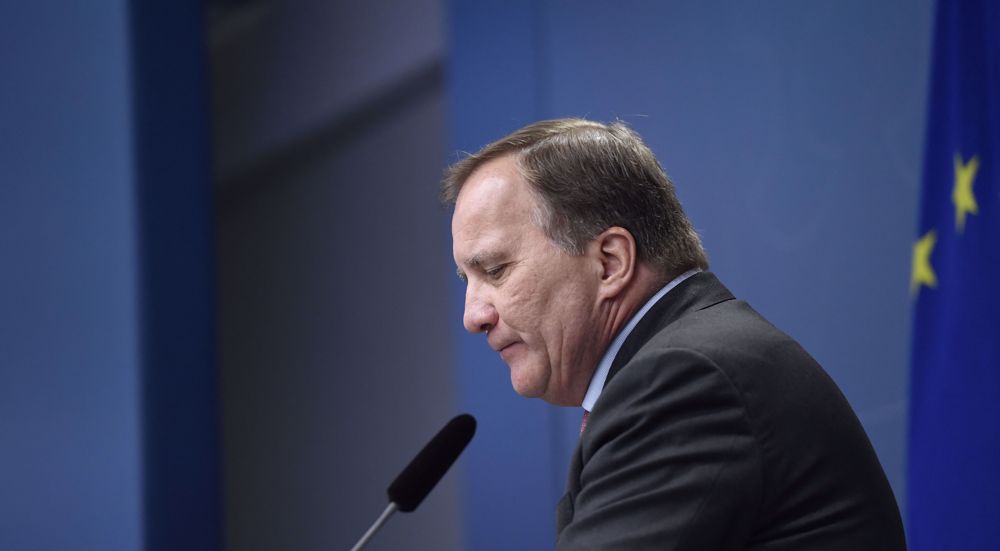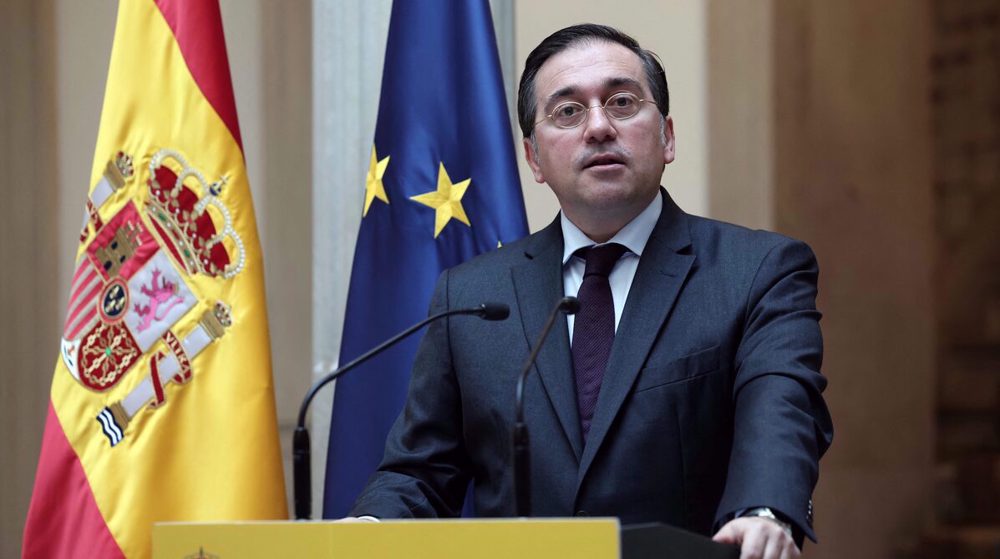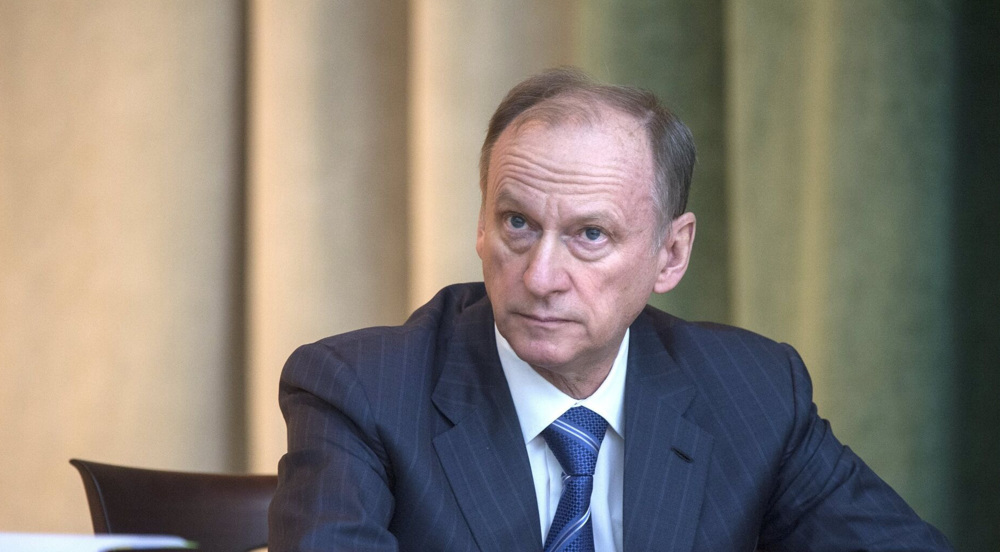Swedish PM resigns one week after no-confidence vote, speaker to look for new leader
Sweden's Prime Minister Stefan Lofven has resigned, one week after he lost a vote of no-confidence, leaving it up to the speaker of parliament to begin the search for a replacement.
Lofven could have either called a snap election or resigned following the no-confidence vote last week.
"I have requested to be dismissed as prime minister," Lofven told a news conference, admitting defeat in his efforts to find fresh support from lawmakers that might have secured his reappointment.
"It is the most difficult political decision I have ever taken."
Speaker Andreas Norlen will now have up to four attempts to find a new prime minister with enough backing from parliament.
If he fails, a snap election must be called.
Any new administration will be a short one, as regular polls must be held in September 2022.
"With one year left until the election, and an ongoing pandemic, a snap election is not the best thing for Sweden," Social Democrat leader Lofven said on Monday.
"We can't use our time for political games."
Sweden hopes to lift mostly voluntary COVID-19 restrictions after the summer as infections have been falling.
Nicholas Aylott, Associate Professor of political science at Sodertorn University, said Lofven could probably return as prime minister with support from the Left and Center parties. But a government would only be viable if he can get them to agree on a budget.
"Lofven is surely confident that he'll cobble together the 175 votes that he needs," he said. "Getting the Left and Center parties behind the same budget will be tricky, but some fudge could be found."
Deadlock
Lofven, a former union boss and welder, had headed a fragile minority coalition with the Greens since 2018, relying on support from the Center, Liberals and Left Party to keep power.
His mismatched government is a result of the rise of the Sweden Democrats, a party with roots in the far-right which is now the third-biggest in parliament.
The center-right split over whether to seek a political accord with them after the 2018 elections, with the Center and Liberals choosing to support their former rivals instead of giving the Sweden Democrats a chance to influence policy.
The Liberals have switched sides again and the center-left and center-right blocs are now evenly balanced in parliament.

Last week's confidence vote had triggered frenzied talks across the political spectrum as both blocs tried to line up enough support to form a government.
Critics have described the constellation that joined forces against Lofven as an "unholy alliance" of parties at opposite ends of the political spectrum.
After 11 unsuccessful no-confidence votes in modern Swedish political history, Lofven, who has previously distinguished himself by his ability to survive political crises, thus ended up setting an unwanted precedent.
It took Lofven four months to form a government after 2018's inconclusive election and the speaker's job looks like being just as tough.
"We could still end up in a snap election," Lofven said.
"Then we don't know whether we will end up in a situation that is any more clear."
Tolerated by parliament
Lofven's minority government took power in 2019 after months of political turmoil following inconclusive elections in 2018.
To secure control it signed a deal with two center-left parties, the Center Party and the Liberals, and was propped up by the Left Party.
It will now be up to parliamentary speaker Andreas Norlen to open negotiations with parties to find a new prime minister.
Last time, the process took four months, but Norlen has already signaled that he will not let it take as long this time around.
The Swedish system demands that a prime minister be tolerated by parliament -- they can secure office so long as a majority does not vote against them.
Should the process fail, the country could still end up heading to the polls early.
And even if an "extra election" is called, Swedes will still vote in the scheduled general election in September 2022 -- creating the possibility of two elections in less than a year.
According to an Ipsos opinion poll published Tuesday, the right and far-right would come out on top in a general election, with a very slim parliamentary majority.
In announcing his resignation, Lofven criticized the move to topple his government without having a majority secured to replace him.
"They voted the government out without themselves having an alternative for government," he told reporters, adding that should he be given the opportunity, he was still open to returning as prime minister.
"If the speaker proposes, I'm ready to be tested again in the parliament," Lofven said.
Lofven's government will stay on temporarily to handle routine tasks until a new administration is formed.
(Source: Agencies)
Missile sirens will never stop in Israeli-occupied territories, Iran warns
Leader’s martyrdom will drive Iran to greater dignity and victory: Senior cleric
Iran calls on IAEA to condemn fresh US-Israeli attacks on nuclear site
Murder of innocence: Israeli-US aggression on southern Iran school killed 165 children
Israeli PM’s fate unclear after ‘surprise’ missile attack on his office: IRGC
Iran Armed Forces shoot down US F-15 fighter jet near Kuwait border
IRGC, Army launch fresh waves of missile strikes against Israeli, US targets
Red Crescent Society: 555 people killed across Iran in US-Israeli onslaughts










 This makes it easy to access the Press TV website
This makes it easy to access the Press TV website